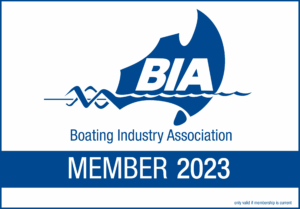Purchasing Recommendations
Most boat trailers are sold by retailers as boat/trailer/motor packages. This article outlines the key issues a purchaser should address to ensure the trailer component of the package is high quality and will satisfy his/her needs. Or if you simply need to replace your old trailer follow the same steps.
Intended use of boat and trailer
Firstly ask yourself what you intend to do with your new boat. Will it spend the majority of its life at the holiday house only a few kilometres from the water? Or will it frequently travel long distances? Will the boat and trailer be heavily loaded with holiday gear or will it be empty? This is the key to happy boating and trailering, so be honest with yourself and if the circumstances change at a later date alterations can be made.
Determine Gross Weight
All trailers are designed and built to a maximum gross load. In simple terms this means the trailer cannot carry any more weight than it was designed for. Many people incorrectly determine or underestimate the maximum gross load. To determine this gross load all factors must be added together;
- The boat weight (stated in the boat pamphlet). Be careful to note whether it includes motor and fuel or is it a dry weight figure;
- Accessories fitted to the boat. eg. anchor, chain, safety equipment etc. The weight of these items may be minimal but if your trailer is already approaching the maximum gross weight…these items will make a difference.
- Don’t forget to include the tare weight of the trailer itself.
Add all these items together and you will have your estimated gross load then compare this to what is stamped on the compliance plate of the trailer. If you only drive your rig short distances and your estimated weight is near or below maximum gross weight specified, your trailer will satisfy your needs. However if you intend to travel long distances, whether it be in one trip or several frequent trips, a larger safety margin is required. Generally on Ionger trips more weight is carried whether it be additional safety equipment or personal items. Trailers at or exceeding the maximum gross weight, travelling long distances will fail at some stage. Usually the bearing will fail first, this deterioration will then cause other failures within the hub and axle. Note: Be aware of the brake requirements associated with the gross weight of your rig.
- Under 750kgs gross weight – no brakes required;
- 750kgs to 2000kgs gross weight – brakes required on one axle only, actuated by an override brake coupling;
- Over 2000kgs gross weight – brakes on all axles, and actuated by some means from driving position in the tow vehicle.
If the above requirements are not met initially it is a costly exercise to correct later.
Axles and U-Bolts
Are they galvanised? Fining of galvanised components extends the life of your trailer and increases its resale value. There is no benefit to a suspension (axle, hubs, u-bolts springs etc.) that is only partially galvanised. Mackay Multilink offer a fully galvanised suspension as a feature on all trailers on both Mackay 2010 and Multi-link series of trailers. This also includes galvanised wheels, hubs, wheel nuts, and wheel studs on the Multi-link Series.
Brakes…if required
Hydraulic disc brakes versus mechanical disk brakes. Selection is a personal preference. The main issue to consider is that nothing surpasses a hydraulic disc brake for stopping power, it automatically adjusts itself to normal wear and tear with no manual adjustment required. Mechanical brakes require adjustment. This must be done manually two to three times a year depending on the amount of use. Note: Electric drum brakes that are fitted to caravans and horse floats are not recommended on boat trailers because of their inability to withstand continual submersion in water. Hydraulic brakes do however require more maintenance. We recommend having them seen every six months
Warranty
The warranty offered with your new trailer does it offer you total security or is there a lot of small print and conditions that only apply to some parts of your trailer.
Compliance Plate
Lastly familiarise yourself with the information stamped on the compliance plate. The compliance plate is fitted by law to tell the end user what the trailer is capable of carrying. Never buy a trailer without a fitted compliance plate. If the details on the compliance don’t match your intended use don’t buy the trailer regardless of how cheap it seems at the time.
Australian Made VS Imported
Imported can be attractive in price and on initial viewing, but has the importer been in business for a long period of time? Do they supply Australia wide back up and support, Has the brand been on the market for a long time. There are many un-reputable importers selling rubbish on the market. Do your homework before you buy.

